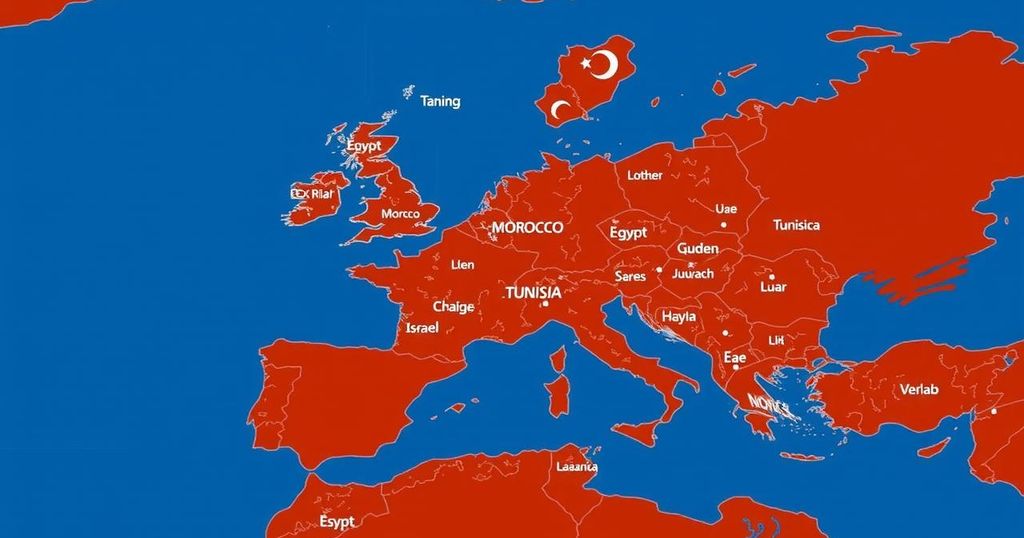The UK FCDO has updated travel advisories for Morocco, Egypt, UAE, Tunisia, and Israel, urging British tourists to exercise vigilance amidst increasing regional tensions. Travelers are advised to avoid large gatherings, monitor local events, and comply with security measures to ensure their safety.
The United Kingdom’s Foreign, Commonwealth & Development Office (FCDO) has recently updated its travel advisories for British tourists seeking to visit Morocco, Egypt, the United Arab Emirates (UAE), Tunisia, and Israel. In light of escalating military tensions in the Middle East, including Israel’s military actions against Iran, the FCDO has encouraged UK nationals to exercise increased vigilance while traveling. Tourists are advised to monitor local events closely, avoid large gatherings, and adhere to any instructions from local authorities to ensure their safety during their travels. The FCDO emphasizes the importance of travelers remaining cautious and well-informed. Specifically, Morocco has received a heightened alert due to ongoing regional instability. The advisory suggests that tourists steer clear of political gatherings, as they could lead to unforeseen protests. Increased security measures in Morocco’s major cities aim to enhance visitor safety. Nevertheless, travelers should remain alert, especially in crowded public areas and comply with security directives issued by local government authorities. In Egypt, heightened military operations in regions such as North Sinai have prompted strict advisories against travel to those areas due to terrorism risks. While popular tourist spots remain relatively safe, the FCDO urges tourists to stay updated on current affairs and avoid large crowds which may lead to incidents of unrest. The advisory further encourages adherence to guidance provided by Egyptian authorities to ensure a secure experience in the country. The UAE, a well-favored destination for British travelers, has not witnessed direct military conflict. However, given its proximity to active conflict zones, the FCDO advises vigilance in public spaces throughout the country. Tourists are recommended to keep their surroundings in check and avoid large gatherings, complying with directives from local officials. In Tunisia, the FCDO has flagged specific areas, particularly militarized zones and parts of the Chaambi Mountains National Park, which are deemed high-risk for terrorism. The government has reinforced security around tourist attractions, though visitors are encouraged to avoid political demonstrations and maintain awareness of regional conditions. The advisory for Israel is particularly stringent, recommending “extreme caution” due to the high-security alert resulting from ongoing conflicts in the area. Travelers are advised against non-essential visits to regions close to the Gaza Strip and the West Bank, as these areas experience a heightened risk of military action and instability. The FCDO warns tourists to avoid large social gatherings and political events, as tensions may escalate rapidly.
The issue of travel advisories for British tourists in the Middle East and North Africa stems from increasing regional military tensions, highlighted by Israel’s recent operations in neighboring countries. The FCDO’s updated advisories reflect a comprehensive assessment of the current security conditions across Morocco, Egypt, the UAE, Tunisia, and Israel. These advisories are vital for informing travelers of potential risks and necessary precautions.
In conclusion, the FCDO’s revised travel advisories underline the critical importance of situational awareness and meticulous planning for British travelers to Morocco, Egypt, the UAE, Tunisia, and Israel. Tourists are urged to stay informed regarding local developments, refrain from engaging in potentially risky situations, and adhere to local regulations to maintain their safety. As regional tensions persist, maintaining an informed and cautious approach to travel planning remains essential.
Original Source: www.travelandtourworld.com






